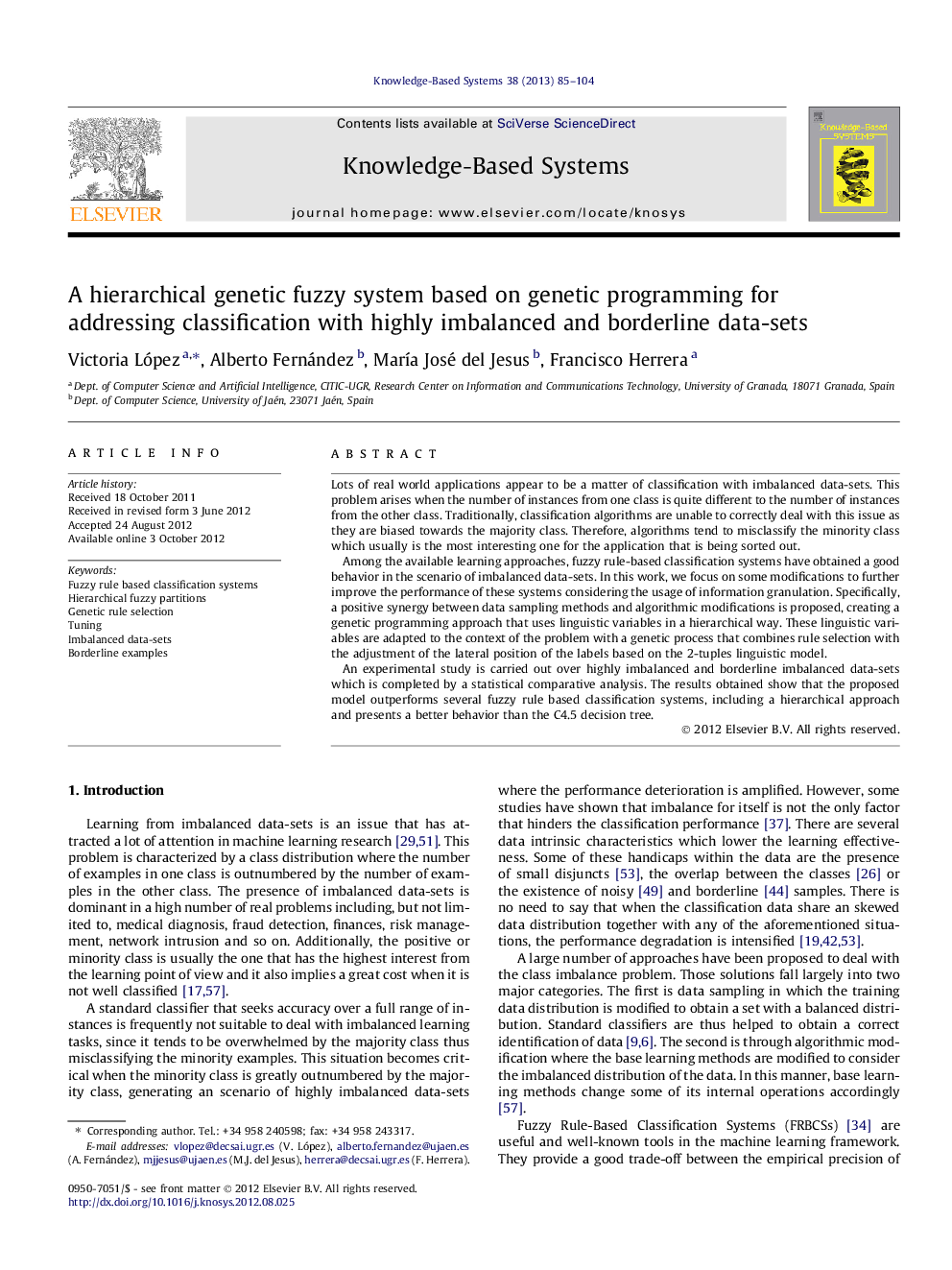| Article ID | Journal | Published Year | Pages | File Type |
|---|---|---|---|---|
| 402842 | Knowledge-Based Systems | 2013 | 20 Pages |
Lots of real world applications appear to be a matter of classification with imbalanced data-sets. This problem arises when the number of instances from one class is quite different to the number of instances from the other class. Traditionally, classification algorithms are unable to correctly deal with this issue as they are biased towards the majority class. Therefore, algorithms tend to misclassify the minority class which usually is the most interesting one for the application that is being sorted out.Among the available learning approaches, fuzzy rule-based classification systems have obtained a good behavior in the scenario of imbalanced data-sets. In this work, we focus on some modifications to further improve the performance of these systems considering the usage of information granulation. Specifically, a positive synergy between data sampling methods and algorithmic modifications is proposed, creating a genetic programming approach that uses linguistic variables in a hierarchical way. These linguistic variables are adapted to the context of the problem with a genetic process that combines rule selection with the adjustment of the lateral position of the labels based on the 2-tuples linguistic model.An experimental study is carried out over highly imbalanced and borderline imbalanced data-sets which is completed by a statistical comparative analysis. The results obtained show that the proposed model outperforms several fuzzy rule based classification systems, including a hierarchical approach and presents a better behavior than the C4.5 decision tree.
